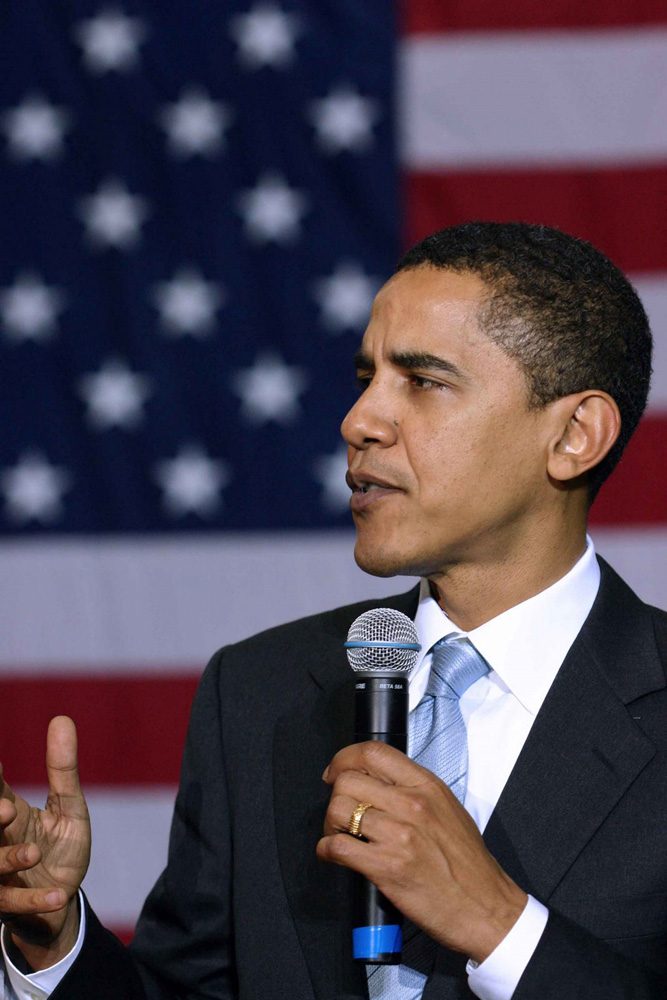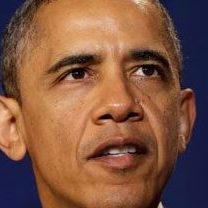 This lesbian believes that Barack is just what this country needs.
This lesbian believes that Barack is just what this country needs.
I live in Dallas, just a short drive away from the ghostly intersection where John F. Kennedy was assassinated on the edge of downtown. In fact, in the course of traversing life in my neighbourhood, I often end up driving down the exact route of the fateful Kennedy motorcade: north on Houston, west several yards down Elm, under the triple overpass. It’s a route I take almost daily, usually on some mundane errand such as picking up a gallon of milk.
It is a surreal and chilling few seconds, heading to the grocery store along the same street where a violent act sent our country swerving so hard to the right. It’s all there: the depository, its beautiful red bricks stark against a blue Texas sky. The grassy knoll, flanked by a now-rotting wooden fence. The underpass, just as you’ve seen it a hundred times in movies, documentaries and the Zapruder film, right after Jackie Kennedy jumped to the back of the car to grab her husband’s skull.
As dramatically seared into our nation’s collective memory as those images are, they are not the most disturbing parts of the drive. The spine- traversing chills and lumpy throat are reserved—on my part, at least—for two simple white Xs painted on the street. The Xs mark the exact spots where two bullets tore into Kennedy’s neck and brain, killing him.
Those Xs are why I’m voting for Barack Obama.
See, those Xs do not just mark a gruesome bit of history. Ghoulish as they are, they pinpoint the exact moment when we as a nation made a wrong turn, from dreamy aspirations to nightmarish cynicism, from confidence to fear, from envisioning a bright future to struggling day-to-day. After the Xs, before Obama, it felt like we were stuck, slaves to the cynical inertia triggered by that November day. But since Obama, a certain word has returned from exile and is back in the political lexicon: hope.
It’s a curious and rather beautiful paradox that in some ways Obama’s rise would have been much more difficult had it not been for Kennedy’s assassination. While he was alive, Kennedy’s ambitious civil rights legislation faced an uncertain journey through Congress, but after his death, Lyndon Johnson strong-armed it into law, as a tribute to Kennedy’s legacy.
And so Obama finds himself an heir—in many ways—to the fiery fight for social justice begun by many and embodied by Kennedy. And Obama doesn’t disappoint: LGBT issues, women’s issues, racial issues, class issues—these are things most politicians avoid as if they were not problems but porcupines. These politicos are afraid—afraid of appearing “too liberal,” afraid that bringing up uncomfortable subjects will just prove to be too alienating.
Taking on these topics is Obama’s gift, however, and it was Kennedy’s too. Obama is fearless in his honest, driving, direct approach. Sans drama, with compassion and eloquence, he drags these issues from musty closets and, well, outs them. Take his Jan. 20, 2008 comments to a primarily African American audience in Atlanta: “[I]f we are honest with ourselves,” he said, “We must admit that none of our hands is entirely clean…We have scorned our gay brothers and sisters instead of embracing them.”
Think of the naked honesty there: Have you ever heard a politician take on the tricky confluence of civil rights, race and LGBT issues? Have you ever heard a politician call out his own base and challenge them to do better in such a way? Have you ever heard a politician call gay people brothers and sisters?
And then, of course, there is the eloquence. I don’t consider myself a Christian, but the Obama campaign’s religious undertones are undeniable and undeniably appealing. Obama’s podium often seems more like a pulpit. With his cadences and intense-but-personable eloquence, he preaches his gospel of political resurrection: the rebirth of hope—the type of hope last embodied in the Kennedy White House. This is the type of hope that, at my age, I have never encountered. This is the type of hope that, sadly, does not come along every day in American politics. And this is the type of hope that has led me to believe in certain forms of resurrection myself: the rebuilding of New Orleans, the resurgence of social justice, the recasting of fear from a manipulative tool into an opportunity for change. This last one is Obama’s promise, and it reminds me of those Xs on Elm Street. Because if you look at an X the right way, it is not an X at all, but an intersection, a crossroads. Maybe this time we’ll choose the right direction.

